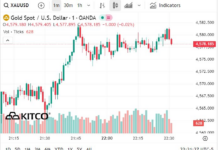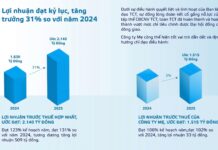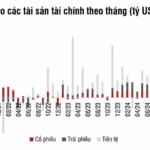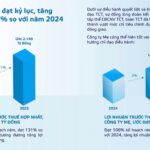From the perspective of a fund management company, we clearly see that IR is evolving from a peripheral function to a central role in building trust, shaping stock branding, and driving strategic capital. It’s not just an evolutionary shift in role, but a change in mindset.
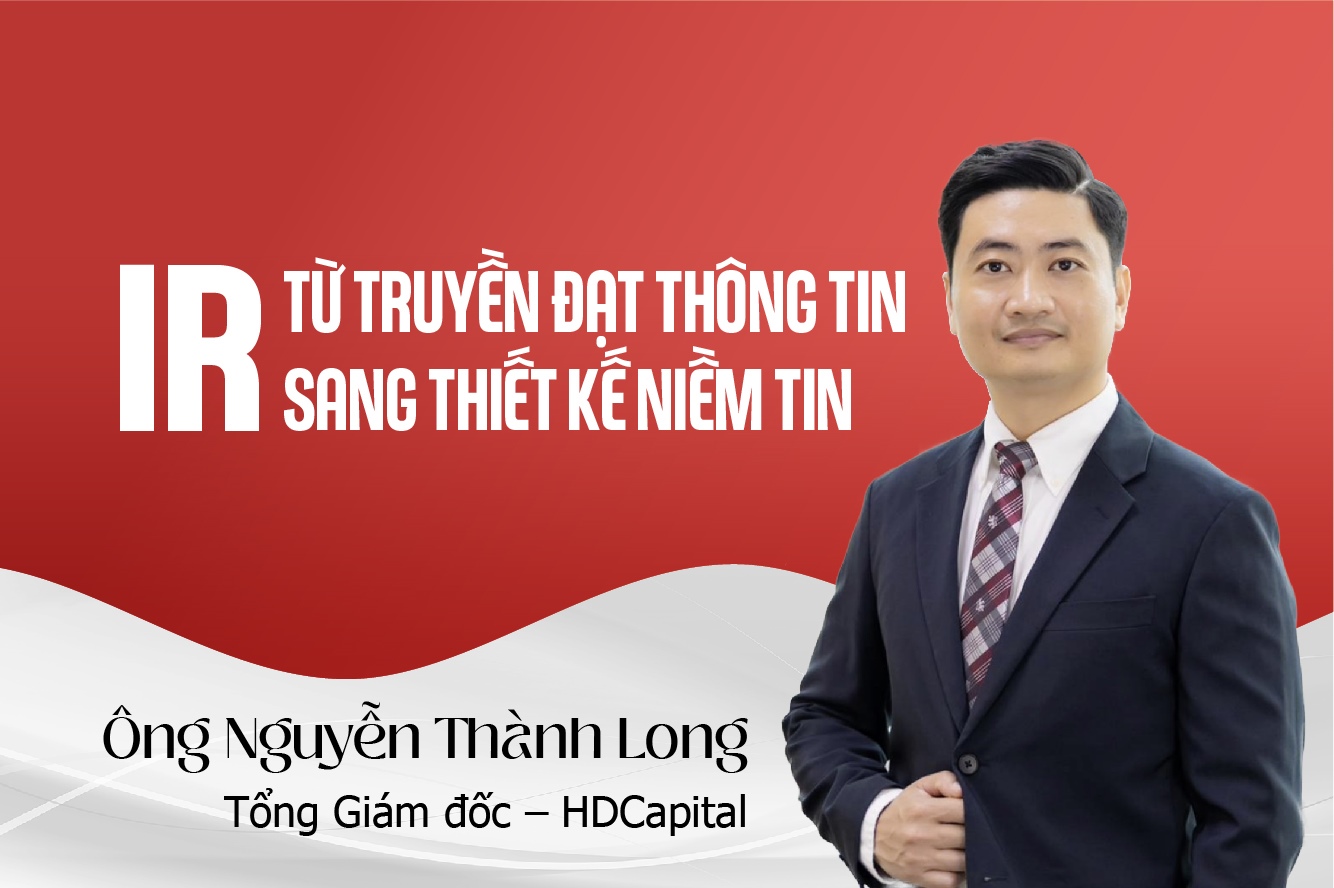
When investors buy not just stocks, but faith
Institutional investors, especially long-term ones, base their decisions on more than just financial reports or industry prospects. They increasingly value transparency, interactivity, and the level of commitment exhibited by the business. These factors aren’t conveyed through numbers alone but through the company’s “conversation” with the market, which is where IR steps in—not just relaying information but building trust.
In reality, many financially efficient businesses have unattractive stock prices, low liquidity, and fail to attract institutional capital. This is often due to IR capabilities gaps, such as incomplete or opaque information or merely superficial investor relations.
On the other hand, companies with professional and strategically-minded IR teams that maintain a positive presence in the investment community, even during challenging market conditions, tend to establish a solid footing. Notable examples include HDBank, Vietjet, and FPT. HDBank has integrated its IR team into its governance strategy, always ready for dialogue with institutional shareholders, providing thorough and proactive updates on disclosures and annual IR programs. Vietjet leads in transparent disclosures and actively organizes international roadshows, conveying an inspiring narrative of a globally integrated Vietnamese enterprise.
From “Messenger” to “Strategic Companion”
The market highly values IR teams that go beyond statutory disclosure obligations and are included in strategic planning sessions with executive management and boards of directors. In these scenarios, IR professionals are not just “press release writers” but “strategic interpreters,” translating internal messages into market-oriented communications that align with investor expectations while addressing market concerns about strategy, risks, and execution capabilities.
When IR sits at the table with senior leadership, they gain a deeper understanding of the company’s strategy and provide market insights to the management team, resulting in more realistic, feasible, and capital-attractive strategies.
In our investment journey and partnership with listed companies, we’ve witnessed pioneering enterprises redefining the role of IR towards a more strategic position.
Specifically, some companies structure their IR departments as independent strategic units, staffed by financially savvy professionals who play a pivotal role in shaping messages, crafting disclosure content, and planning investor engagement. These IR specialists possess the skills to interact deeply with institutional investors.
Additionally, the IR team is involved in policy feedback and assessing the impact of significant financial decisions (M&A, issuances, dividend policies, etc.) before they are publicly announced.
These factors have helped these businesses not only maintain the trust of existing shareholders but also attract long-term capital and enhance sustainable market capitalization.
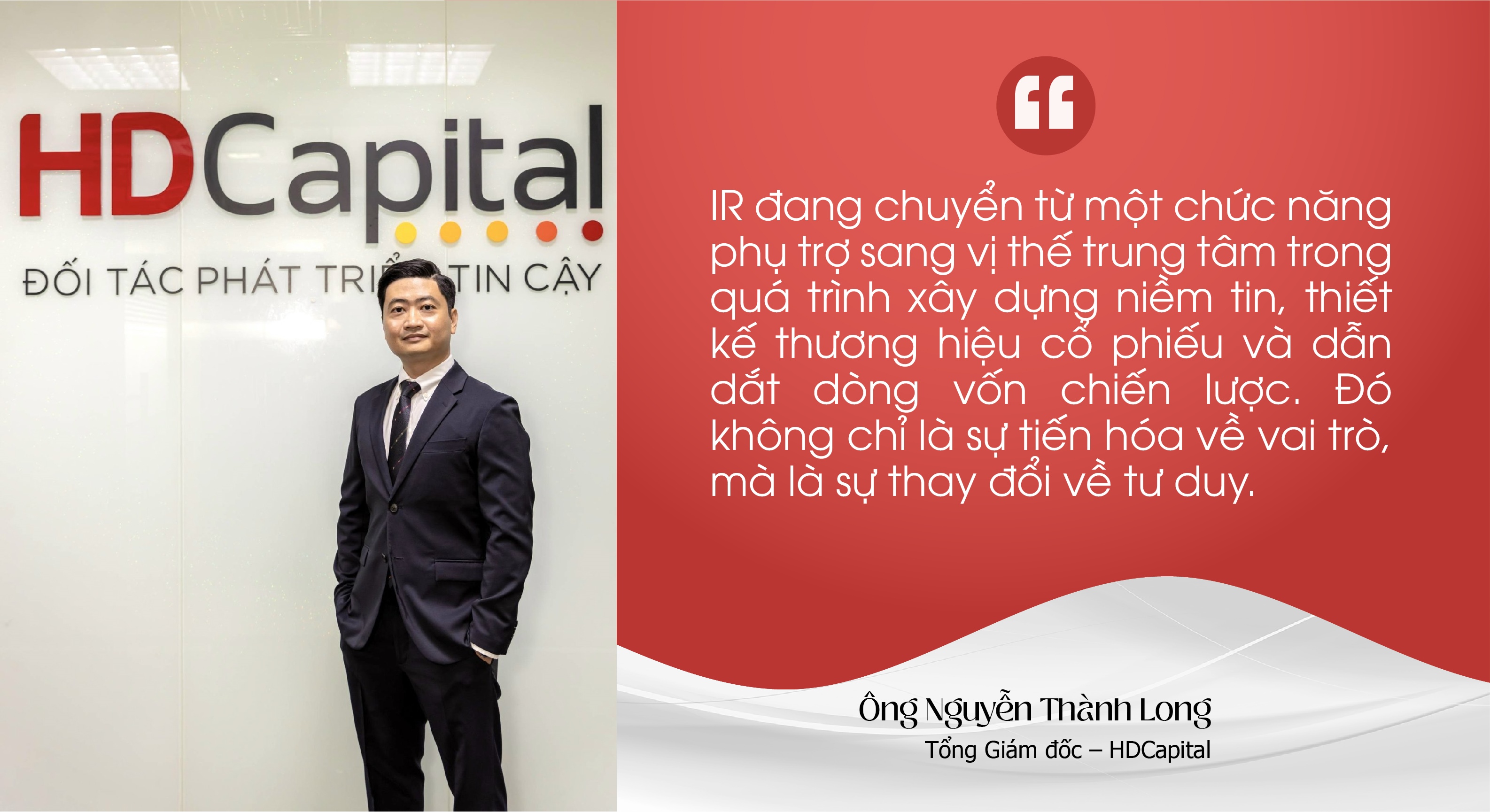
Trust is a Long-Term Financial Asset
As representatives of the buy-side, fund management companies view IR as a long-term indicator of a company’s governance capabilities and willingness to partner. When analyzing an investment, in addition to quantitative metrics, we at HDCapital prioritize questions such as: Does the company have a proactive IR system with direct interaction capabilities? Do IR professionals have access to strategic information and coordination with senior management? Is the information disclosure system transparent and bidirectional?
Positive responses to these questions often reflect a corporate culture oriented towards transparency, respect for shareholders, and maturity in governance—factors that hold more lasting value than transient profit figures.
In an era of increasing capital market integration and aspirations for upgrade, the role of IR extends beyond “conveying the right information at the right time” to “strategically and sustainably narrating the company’s story.” A confident IR team with strategic capabilities and a long-term partnership mindset is a core element in designing trust, the most critical foundation for attracting long-term capital and elevating market standing.
Nguyen Thanh Long, CEO of HDCapital
Crafting Trust in the Capital Markets
In today’s dynamic financial landscape, characterized by increasing demands for transparency, the quality of corporate disclosures plays an instrumental role. It significantly impacts investment decisions, shapes market confidence, and determines enterprises’ access to capital. However, despite notable improvements, the reality is that the quality of disclosures by listed companies still leaves much to be desired.
Two Scenarios for VN-Index in August: A Bullish Outlook
As we move into August, VFS anticipates that several positive factors will continue to support the market.








